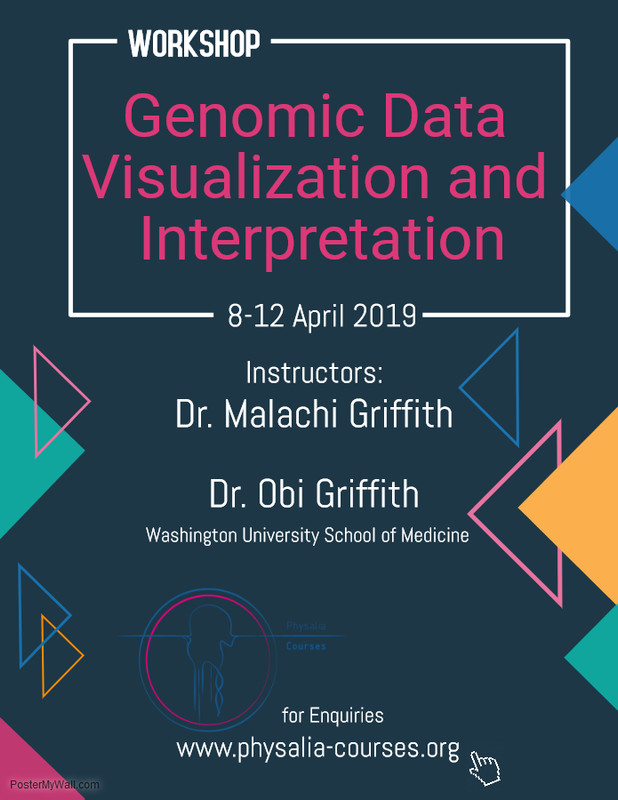
WORKSHOP: Genomic Data Visualization and Interpretation
DATES: 8-12 April 2019
WHERE: FU UNIVERSITY BERLIN
WEBSITE: https://www.physalia-courses.org/courses-workshops/course14/
INSTRUCTORS: @ObiGriffith and @MalachiGriffith (Washington University School of Medicine in St. Louis)
Workshop format: The workshop will be delivered over the course of five days. Each day will include an introductory lecture with class discussion of key concepts. The remainder of each day will consist of practical hands-on sessions. These sessions will involve a combination of both mirroring exercises with the instructor to demonstrate a skill as well as applying these skills on your own to complete individual exercises. After and during each exercise, interpretation of results will be discussed as a group. Computing will be done using a combination of tools installed on the attendees laptop computer and web resources accessed via web browser.
Who should attend: This workshop is aimed at researchers and technical workers who are analyzing some kind of omic data (e.g. WGS, exome, RNA-seq, variant files, etc.). Examples demonstrated in this course will involve primarily human genome/transcriptome data but many of the concepts learned will be applicable to model organisms, metagenomics, simulated data, etc.
Requirements: Attendees should have a background in biology and a basic knowledge of R. We will dedicate one session to a brief R/linux primer. Attendees should have also some familiarity with genomic data. The course will teach relatively advanced usage of R (especially ggplot2 and Bioconductor packages). Attendees should have a working installation of R and RStudio on their laptop.
Example data: Attendees will learn to visualize and interpret results from real human genome data sets generated at the McDonnell Genome Institute at Washington University School of Medicine. These data will be analyzed to determine previously known as well as potentially novel interpretations. Since the example data are not simulated or arbitrarily filtered, interpretation and visualization will be performed in the context of representative levels of sequence error, and other sources of technical and biological noise.
PROGRAM: https://www.physalia-courses.org/courses-workshops/course14/curriculum-14/
For any questions, please do not hesitate to contact us: info@physalia-courses.org

